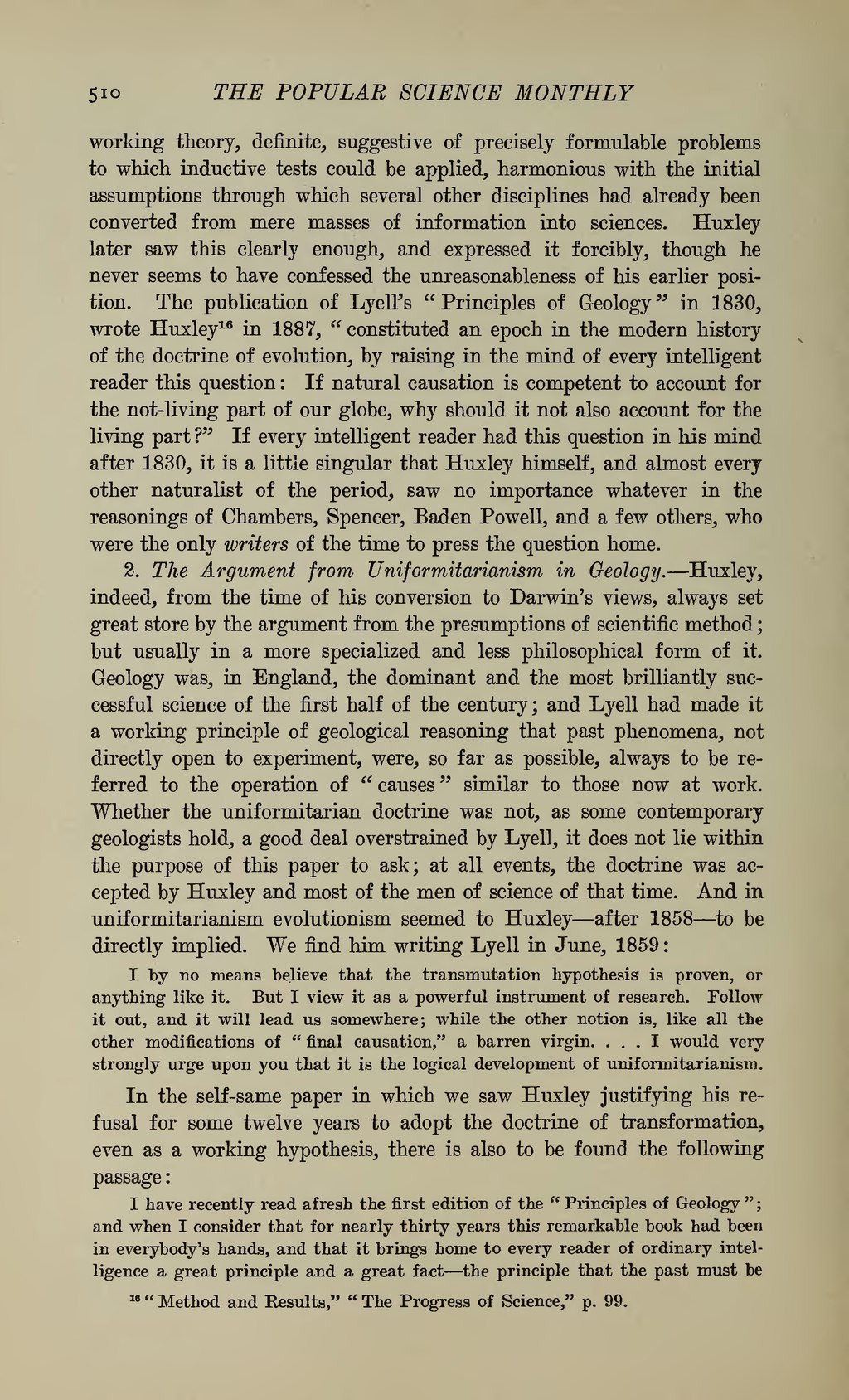working theory, definite, suggestive of precisely formulable problems to which inductive tests could be applied, harmonious with the initial assumptions through which several other disciplines had already been converted from mere masses of information into sciences. Huxley later saw this clearly enough, and expressed it forcibly, though he never seems to have confessed the unreasonableness of his earlier position. The publication of Lyell's "Principles of Geology" in 1830, wrote Huxley[1] in 1887, "constituted an epoch in the modern history of the doctrine of evolution, by raising in the mind of every intelligent reader this question: If natural causation is competent to account for the not-living part of our globe, why should it not also account for the living part?" If every intelligent reader had this question in his mind after 1830, it is a little singular that Huxley himself, and almost every other naturalist of the period, saw no importance whatever in the reasonings of Chambers, Spencer, Baden Powell, and a few others, who were the only writers of the time to press the question home.
2. The Argument from Uniformitarianism in Geology.—Huxley, indeed, from the time of his conversion to Darwin's views, always set great store by the argument from the presumptions of scientific method; but usually in a more specialized and less philosophical form of it. Geology was, in England, the dominant and the most brilliantly successful science of the first half of the century; and Lyell had made it a working principle of geological reasoning that past phenomena, not directly open to experiment, were, so far as possible, always to be referred to the operation of "causes" similar to those now at work. Whether the uniformitarian doctrine was not, as some contemporary geologists hold, a good deal overstrained by Lyell, it does not lie within the purpose of this paper to ask; at all events, the doctrine was accepted by Huxley and most of the men of science of that time. And in uniformitarianism evolutionism seemed to Huxley—after 1858—to be directly implied. We find him writing Lyell in June, 1859:
I by no means believe that the transmutation hypothesis is proven, or anything like it. But I view it as a powerful instrument of research. Follow it out, and it will lead us somewhere; while the other notion is, like all the other modifications of "final causation," a barren virgin. . . . I would very strongly urge upon you that it is the logical development of uniformitarianism.
In the self-same paper in which we saw Huxley justifying his refusal for some twelve years to adopt the doctrine of transformation, even as a working hypothesis, there is also to be found the following passage:
- ↑ "Method and Results," "The Progress of Science," p. 99.
